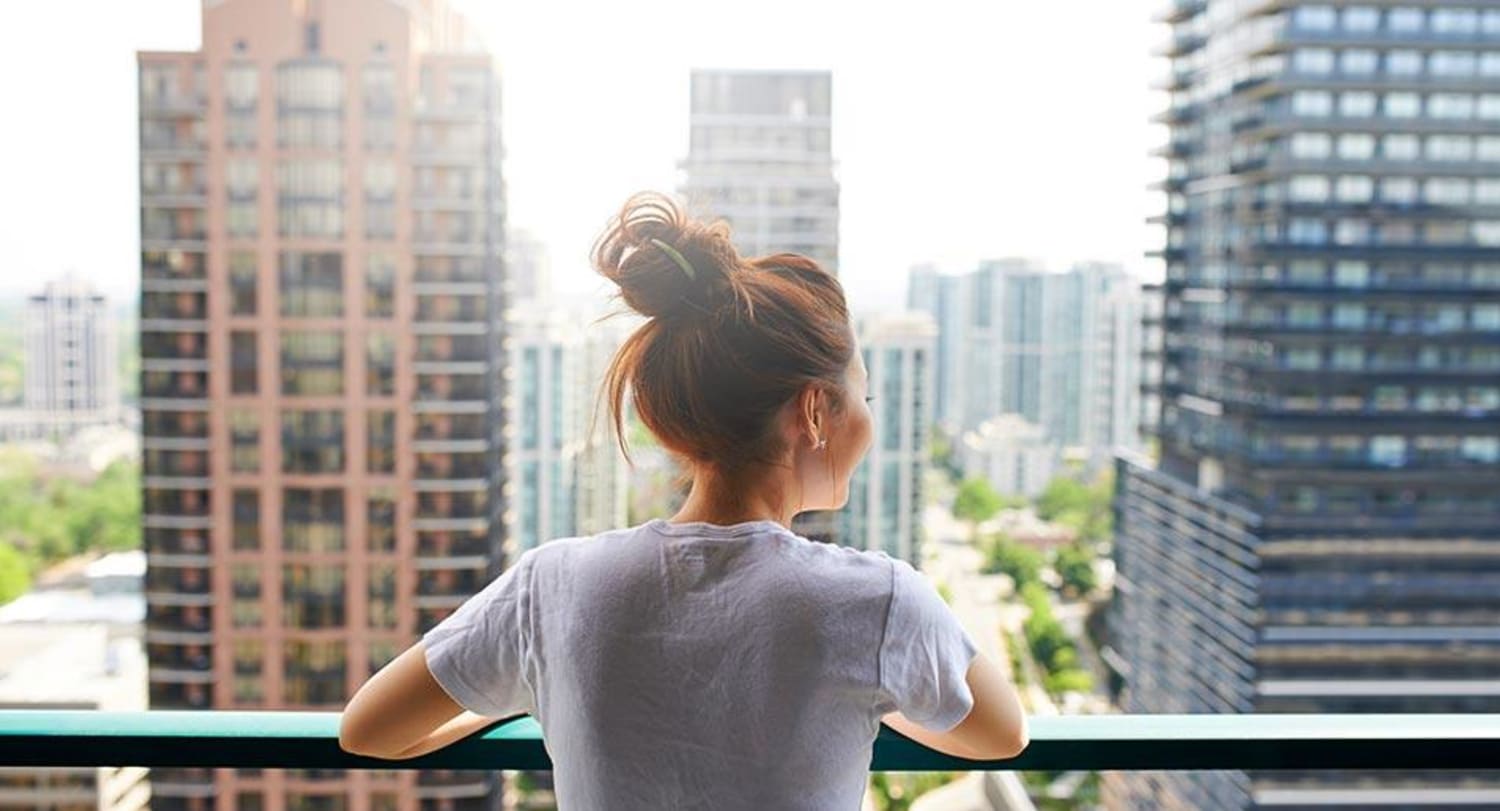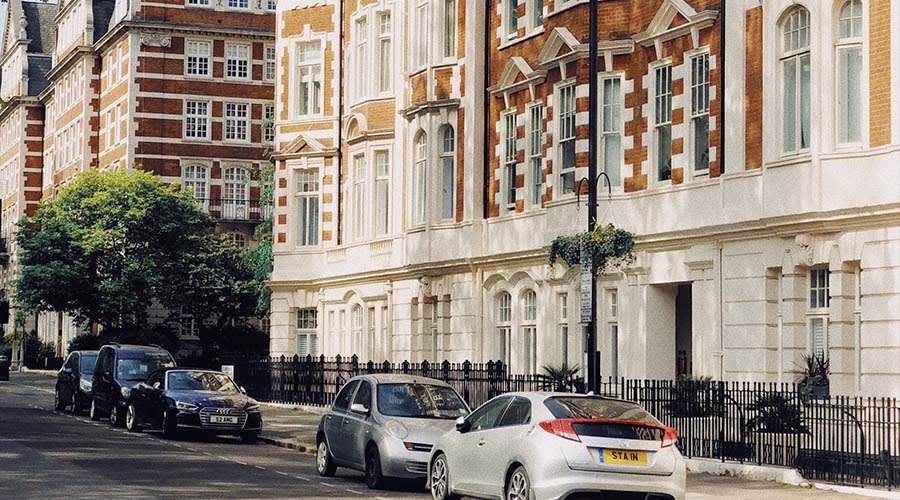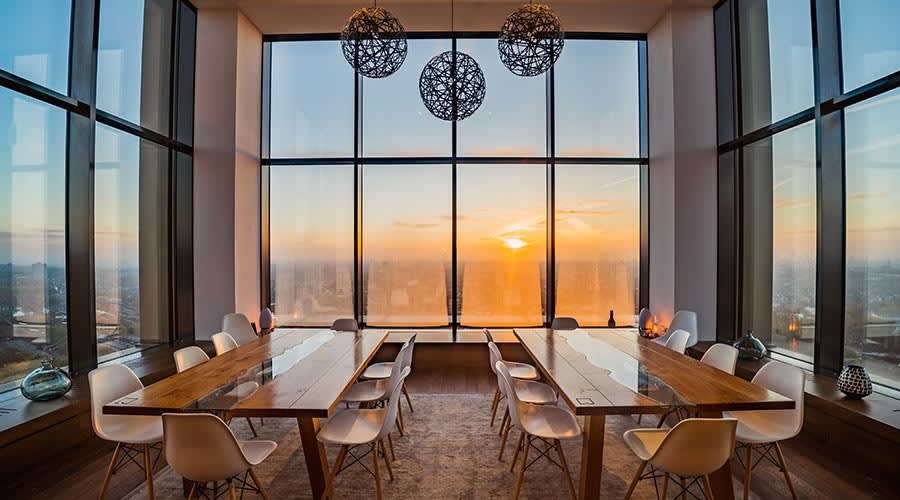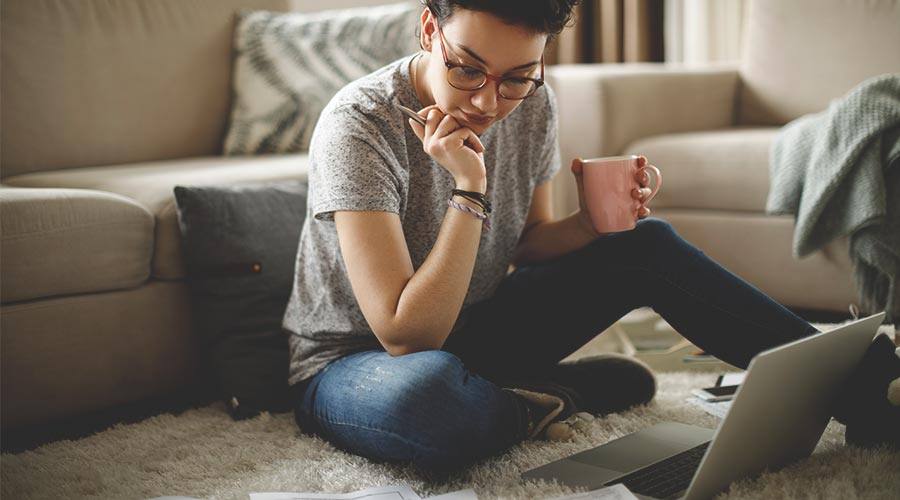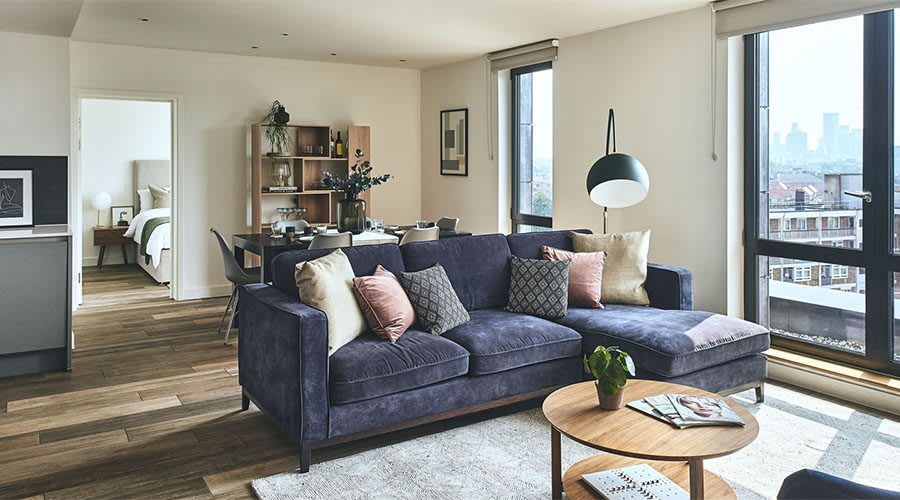When it comes to finding a new home, how do you choose whether to rent or buy? Each option comes with its own unique pros and cons, but choosing one over the other isn't always easy.
It used to be that renting was a more affordable option for having your own home. In today's housing market though, you may find that buying is a more affordable option. Which is best depends on a number of factors, such as:
- Living arrangements
- Finances
- Job flexibility
- Location
Renting or buying will prove to be a more viable option depending on these and many more factors. It's important you know exactly what you need from your home before making the final decision.
Even though we would love to say that one is better than the other, the decision is a relative one. We'll take you through all the things you need to consider to make this important decision. By the end, you should have a much clearer idea about whether to buy or rent your next home.
Renting Vs Buying: What you need to consider
There are two main differences between buying and renting. These lie in the amount of responsibility and flexibility you will have with your home. Buying your home is a more permanent decision, with renting being a temporary one.
However, there are some finer details you'll have to get to grips with before deciding which is best.
Which is more affordable?
Let's start with the biggest factor when choosing to buy or rent, the cost.
Buying your own home is an investment. You are entering into a contract with a bank, sometimes for up to 35 years. It also means that you are at the mercy of the housing market as to whether the investment is a profitable one. If house prices crash, it makes it easier for first-time buyers, but a loss for current homeowners.
When you rent, you will pay a fixed monthly rate for the term of your contract. But, when renewing your contract you may see your rent increase with interest rates.
The main pull for buying is that monthly mortgage payments are usually cheaper than rent. You could end up paying £500 a month for a mortgage on a property that would charge £700+ for rent.
What puts many people off buying their homes is the deposit. Previously the average deposit would need to be 10% of the property price. There is a growing option for 5% deposits, mainly for low-income or first-time buyers.
There are also plenty of help-to-buy schemes offered by the government. These and options such as shared ownership make buying a much more viable option.
You can explore all the government schemes for first-time and current homeowners here.
Mortgages vs Monthly Rent
When you pay rent to a landlord you are essentially helping them pay for the mortgage on the property. The landlord will charge you based on the current interest rates and maintenance. As your landlord is responsible for repairs and overall upkeep, you pay more for this service.
Private renting can be costly because you are paying for more than just the mortgage. You are also paying for the maintenance and the luxury of less responsibility.
Your rental contract can last from anything to 6-weeks to 12-months. The average contract being 12-months. This allows you to walk away from a property if you don't like it or want to move to a new area.
With a mortgage you have full responsibility of the property. A mortgage is a long-term loan, one that lasts an average of 25 years. you will pay a deposit on the property ranging from 5-10% and borrow the rest from the bank.
If you fail to pay your mortgage, the bank is within its right to repossess your home. This is because your mortgage is a loan that is secured against the property itself.
Whether you will be accepted for a mortgage depends on many different factors. Plus, which mortgage you apply for will also be based on things such as your income, monthly spend, debts etc.
If you'd like to read more about mortgages and which mortgage is right for you, check out Money.com. They have lots of articles and guides to help those looking for a mortgage.
Tax Management & Responsibilities
Something that renters do not have to deal with are the many taxes and hidden costs of owning their own home. Landlords will often include these taxes in the cost of your monthly rent. Much like the cost for maintenance, your rent will help pay any taxes on the property.
When you buy your own home, you will have to pay taxes such as Stamp Duty Land Tax. This is only on homes over £250,000. If you buy a property that is worth less than that amount, you won't have to pay Stamp Duty.
If you're buying your home, you also need to be aware that when you come to sell it, there may be Capital Gains Tax. This is unless you have:
- Lived in it as your main home for all the time you've owned it
- Not let out any part of the property or used it part of it for a business
- Grounds & buildings that are smaller than 5,000 square metres
Although you may have to pay taxes, admin fees, broker costs or other costs, buying could still be a viable option. This depends on if you can afford the deposit and you can get a low cost mortgage.
In some cases the cost of taxes and admin costs when buying a home, can still be cheaper than monthly rent. It depends on things like location, deposit and monthly income.
When it comes to deciding which is more affordable for you, ask yourself these questions:
| Question | Renting | Buying |
| Can I afford to put down a 10% deposit? | No | Yes |
| Do I need more financial flexibility? | Yes | No |
| Am I happy to pay monthly and not own my own property? | Yes | No |
| Do I want to spend more each month to maintain the freedom to move at any point? | Yes | No |
| Am I ready to make a larger investment that could pay off in the future? | No | Yes |
Repairs and maintenance
One of the biggest deciding factors when it comes to renting vs buying is responsibility. How much responsibility do you want to take on with the property?
Owning your own home isn't just a financial commitment, it's an energetic commitment. You will be in charge of keeping the house maintained and in good condition. Any maintenance costs and jobs will have to be managed and paid for by you. If something goes wrong, you will be the one responsible for fixing it.
Many people prefer renting in this respect because it gives them more peace of mind. If there's a maintenance issue, all they have to do is inform their landlord. Their landlord then organises to get the problem fixed. The most you might have to do is make sure the property is accessible for repairs.
Even if your landlord requests for you to pay for any repairs or maintenance, you will be reimbursed. Essential Living apartments for example, always have someone on hand 24/7. This means our tenants never feel on their own should an emergency arise.
So, is buying or renting best for you when it comes to responsibility and maintenance of your home?
| Statement | Renting | Buying |
| I don’t want to have to worry about maintenance | Yes | No |
| I would rather have full control over the maintenance of my home | No | Yes |
| I want a stress free life with as little responsibility as possible | Yes | No |
| I want to be able to manage every aspect of my own home | No | Yes |
| I would rather have someone else take care of the finer details of my home | Yes | No |
Location & property flexibility
There are many reasons why you might need more flexibility when it comes to the location of your home. You may travel for work or you may be planning to relocate in the near future.
When you buy your own home you also commit to the location of the property. For some, particularly families, this might be ideal. For others, usually students or young professionals, this can feel limiting.
Unless you know exactly the location you'd like to live in, renting can be a much better option. With renting you have short term contracts that offer more flexibility. Once your contract ends, you have the choice whether to renew or move on.
This is the perfect option if you're still trying to find somewhere to place roots. It also allows you test out new areas, new cities and even different types of properties. You may be renting an apartment and realise you'd prefer a house or vice versa. Renting makes it easier to swap and change your home depending on your changing needs and wants.
When you own a property you have the option of selling up and moving to a new home. But, there are a lot more strings attached. You will have to pay to list your home, pay seller fees and estate agent admin fees. Selling a home is much more difficult than simply cancelling a rental contract.
When it comes to flexibility with your home, how much do you need?
| Statement | Renting | Buying |
| I want to settle down in a chosen area | No | Yes |
| I need to be able to change location at short notice | Yes | No |
| I need to live in a specific area for my work | Yes | Yes |
| I want to be able to test out new locations before settling down | Yes | No |
| I am after a close community that I can fully immerse myself in | Yes | Yes |
| I have a family and we would like to place roots long term | No | Yes |
Which is the best option for you? Renting vs Buying
We are obviously biased when it comes to renting vs buying, but we know renting isn't for everyone. Renting is ideal for those in need of maximum flexibility and a stress free life.
If you want to get settled down in a location and ready to make a financial commitment, buying is the right step.
To help you make this all important final decision, here is a table to help you find the best option. Which will you have the most ‘yes’s’ for?
| Statement | Renting | Buying |
| I can afford a deposit at 10% of the price of the property | No | Yes |
| I want to be able to pay monthly with no commitment to the bank | Yes | No |
| I want maximum flexibility around where I live | Yes | No |
| I want to settle down into one specific area | No | Yes |
| I can afford to pay for any hidden costs and taxes that may come up | No | Yes |
| I want someone to manage all the maintenance of the property | Yes | No |
| I want a contract that lasts no more than 12-months, allowing me to move after this time | Yes | No |
| I am ready to commit to the upkeep of a property | No | Yes |
| I want to make a financial investment that could pay off in the future | No | Yes |
| I want to get onto the property ladder | No | Yes |
| I want a risk free home that I know I won’t lose money on in the future | Yes | No |
A myth around renting is that it is wasted money, but it depends on your needs and preferences. Renting can be a hassle free way of living in your dream home. You get the opportunity to enjoy the property fully without any of the stresses of owning a home.
At Essential Living we make sure that our apartments give you everything you need. We also include the biggest bills (gas, electric, water) in your monthly rent.
To find out about the benefits of renting of our London apartments, take a look here.
